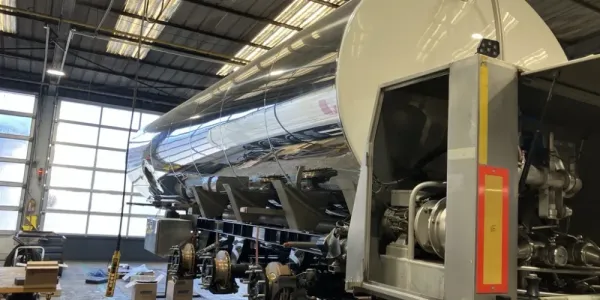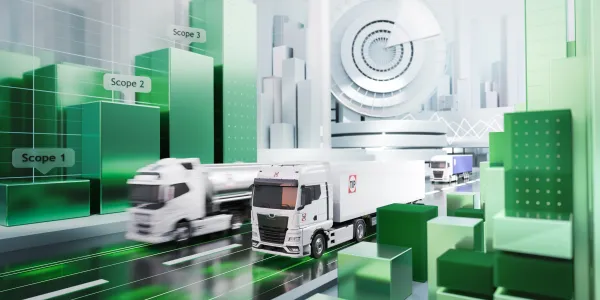Plastic Fishing: Sailing to a Sustainable Future
As an industry leader, TIP is aware of its unique responsibility encouraging sustainable development and leading the industry through a green transition.
One of the seven pillars of our ESG strategy “for Generations to Come” concerns circular economy, which aims to implement an effective and efficient waste management at TIP. For a greener tomorrow, we need to take actions together, today – at local and global levels.
We wanted to call attention to how much we can all do for the environment, so we cleared the canals of Amsterdam from plastic, with plastic fishing expert Plastic Whale. Plastic fishing is an innovative and fun activity to get people fired up and thinking about the kind of waste that is around us, and how it can be reused.
Plastic is all around
Due to a global, throw-away lifestyle, the issue of plastic pollution has become unbearable for the planet. 50% of plastic goods are designed for single-use purposes. We get rid of them so quickly, but their environmental footprints exceed several generations. Have you ever wondered what happens to these items when they are not to be recycled? Where do all the shopping bags, packages, and beverage bottles end up after they have served their purpose?
The answer is simple: they’ll stay on the planet for hundreds of years, harming the environment.

Plastic by the numbers
Globally, we produce 381 million tonnes of plastic each year, and this shocking number is projected to double by 2034.
500 billion plastic bags are used a year. That means 150 bags for a person.
8 million pieces of plastic enter the oceans every single day. That’s equal to a garbage truckload by minute.
Once plastic waste gets into our waters, it begins to break down into smaller pieces, so-called microplastics. Microplastics are toxic to our soil, waters, and every living being. These tiny bits spread through water to every corner of the world, from Mount Everest to the Mariana Trench.
We all know that things need to change, including effective waste management.
The future relies on us
We believe in a sustainable future. As a transparent and accountable firm operating in the transportation industry, we commit ourselves to environmentally responsible practices, supporting global environmental change.
Our team is dedicated to delivering the next generation of smart solutions that transform the industry into a sustainable field. In the upcoming years, we are going to focus on balancing the wants of our customers and the needs of nature. Leading the way in sustainability. Maintaining an efficient and safe transportation ecosystem with less carbon emission, we will help improve the planet and support businesses in becoming more competitive.
Think global, act local
Coming to work to the Amsterdam Head Office every day, we can recall countless moments when we took a glimpse at the beautiful canals, but a piece of floating plastic soiled the view. The global plastic issue affects each of us, and if we tackle it in our microenvironment, the whole world can benefit from it. In fact, true change comes from within:
To reach our goal as a team, we need to make the individual take responsibility first.
To accelerate global change, we need to take steps locally first.
Individual responsibility in environmental sustainability is key. And what else could better give notice of the power of community and individual capacity than a local project?
We wanted to have a positive impact on the city and organize an event linked to our core values. So we were happy to organize a local waste management event, called plastic fishing. Plastic fishing is an innovative activity invented by Plastic Whale to eliminate all the plastic from our waters and raise awareness of plastic pollution, in an entertaining way.
Aye, aye, Captain!
20 eager TIP team members volunteered to transform into plastic hunters for a day. Navigated by the Plastic Whale captains, 6 boats sailed into the Canals of Amsterdam to capture garbage patches.
We scavenged the canals for anything non-organic. Plastic bottles stuck behind parked boats? Got them! A shopping bag floating at the edge of the canal? Fished out! A duck picking at a shimmering cardboard cut-out? Never again! We moved the plastic and saved the duck.

Our findings were miscellaneous: ping-pong balls, unopened cans, paper cups, a small canvas, and lipstick, to name a few. And all these items had a back story. Just like the people who got rid of them. How did those items get into the water? Who may have used them? When? Why?
After we finished sailing, we ran a storytelling competition between the crews and crafted short and sweet stories to accompany our peculiar finds. Tales of full moon parties, romance, and even betrayal were told, and finally, the captains named the winner. It made the event even more fun!
Give more, take less
The economic value of recycling is invaluable. We hope that with this event we managed to get people to become conscious about the massive amount of plastic waste we generate every day and what we can do against it – both individually and as a team.
Taking our efforts greener is key for a sustainable reality. It is our common interest, and everybody has their own responsibility in helping the environment.
Eventually, little steps lead to big change. So, ask yourself: what can I do, personally, for a sustainable future? Engage with others and find inspiration on how you can do more. Never stop looking for sustainable options around you. Be kind to nature and do your part every day. Fish plastic, bring your own refillable cup to your favourite coffee shop, or use cotton bags for your groceries.
At TIP, we believe it’s extremely important to contribute making a difference. Therefore, we are committed to accelerating our green transition.
Let’s draw together the road of tomorrow, for Generations to Come!




